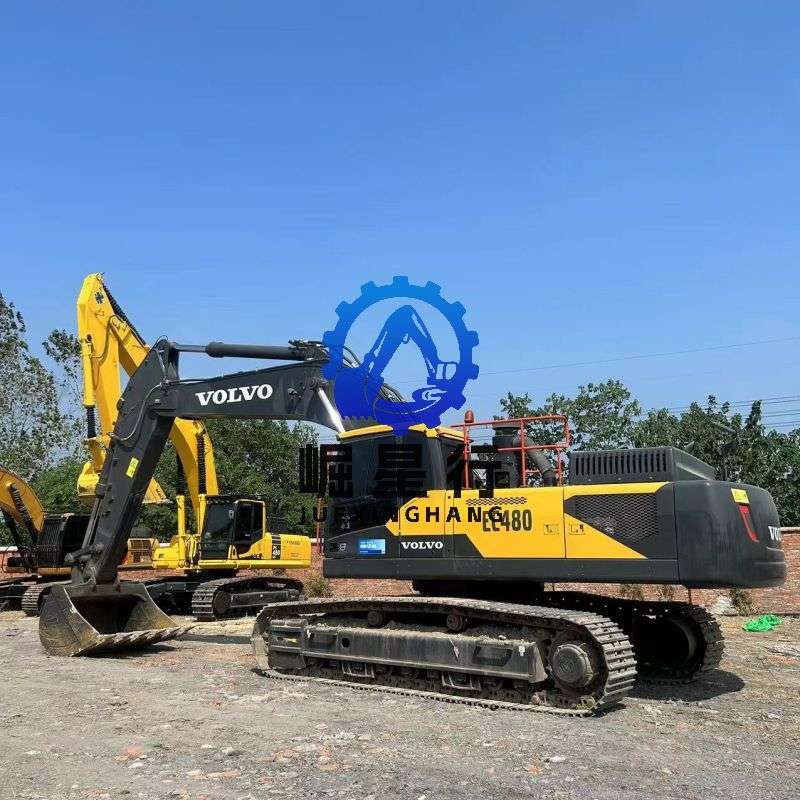In construction and civil engineering, excavators are indispensable heavy equipment. According to the scale and needs of the project, it is crucial to choose an excavator of the right tonnage. Especially when choosing a second-hand excavator, due to its relatively low price and complex usage, how to choose a suitable second-hand excavator according to different tonnages is a question that needs careful consideration. This article will provide you with a detailed guide on the selection of second-hand excavators of different tonnages to help you make a wise decision.

1-5 ton small excavators
Scope of application:
1-5 ton small excavators are suitable for operations in small spaces, such as urban construction, landscaping, urban infrastructure maintenance and other places. They are favored by users because of their small size and flexible operation, especially in the streets and alleys of the city or in complex construction environments, they can flexibly travel and perform fine operations.
Selection points:
Engine performance: The engine performance of a small excavator directly determines its operating efficiency. When choosing, pay attention to the power and fuel consumption performance of the engine.
Wear of equipment parts: Since small excavators are often used in compact spaces, they will produce greater wear, especially the hydraulic system, crawler and control components.
Travel system: Due to the complex working environment, the wear of the crawler and whether it is possible to replace it need to be considered when choosing.
6-15 ton medium-sized excavator
Scope of application:
6-15 ton medium-sized excavators are suitable for various small and medium-sized construction projects, such as highway construction, bridge construction and mining. They have stronger working capacity than small excavators while maintaining good maneuverability.
Selection points:
Hydraulic system condition: The efficiency of the hydraulic system is an important indicator of the performance of medium-sized excavators, so it is key to check the wear and oil leakage of hydraulic pumps, cylinders and hoses.
Body structure: The body of a medium-sized excavator is generally strong, so pay attention to check the damage of the chassis, slewing bearing and other parts.
Working arm and bucket: Medium-sized excavators are mostly used for excavation, loading and other operations in engineering. Check the wear and deformation of the working arm and bucket to ensure their carrying capacity.
16-30 ton large excavators
Scope of application:
16-30 ton large excavators are mainly used for large earthwork operations, such as mining, large highway and bridge construction, etc. They usually have higher operating efficiency and stronger carrying capacity, but they are larger in size and less flexible.
Key points for selection:
Engine and hydraulic system inspection: Due to the high working intensity of large excavators, the service life of the engine and hydraulic system is crucial. Special attention should be paid to whether the engine power is stable and whether there is leakage and performance degradation in the hydraulic system.
Wheel and track inspection: Large excavators are often used in harsh working environments, and the wear of tracks and wheels directly affects the driving ability. Check whether the tracks have cracks, uneven wear, etc.
Cab and operating system: The operating system of large excavators is complex. Ensure that the cab is easy to operate, and the electronic control system and sensors work properly to avoid operational delays or errors.
Super large excavators of 30 tons and above
Scope of application:
Super large excavators of 30 tons and above are mainly used for heavy projects such as mines and quarries, with extremely high operating capacity and load capacity. Due to its high price, the second-hand market is relatively limited, so you need to be extremely cautious when choosing.
Selection points:
Engine and power system: For super-large excavators, the performance of the engine is the most important. Make sure that the engine has sufficient power, no major engine failures, and stable fuel consumption.
Slewing bearing and hydraulic system: The working environment of super-large excavators is extremely harsh, and long-term high-load operation is prone to hydraulic system failure. In particular, it is necessary to check whether the slewing bearing, hydraulic cylinder and hose are leaking.
Overall equipment maintenance record: Due to the high price of super-large excavators, it is recommended to ask the seller for complete maintenance records when purchasing to understand the historical maintenance of the equipment.
How to evaluate the value of a second-hand excavator?
Maintenance history: It is crucial to understand the maintenance history of the equipment. Whether there is a regular maintenance record and whether it has experienced major failures or repairs are important factors affecting the purchase decision.
Appearance inspection: Check whether the appearance of the equipment has obvious damage or deformation, such as cracks, oil leakage, etc.
Test machine test: Perform a test machine test to check its working performance, including the operating status of the hydraulic system, walking system, slewing system, etc.
Equipment age: The older the equipment is, the lower its value is and the more hidden dangers it may have. Therefore, it is usually a wiser choice to choose newer second-hand digging equipment.
Second-hand excavators of different tonnages are suitable for engineering projects of different sizes and types. Choosing the right excavator can improve work efficiency and reduce costs. Small excavators are suitable for projects with small spaces, medium excavators are suitable for small and medium-sized projects, large excavators are suitable for large-scale operations, and super-large excavators are mainly used for special heavy projects. When choosing a second-hand excavator, you should consider the project requirements, equipment usage, maintenance records and other aspects to ensure that you purchase equipment with high cost performance and stable operation.
If you have any questions about the choice of second-hand excavators, or need to know more about the specific models and supplier information, please contact An Hui Jue Xing Hang Construction Machinery Trading Co., Ltd. We will provide you with professional equipment selection suggestions and high-quality after-sales service.
.png)
.png)

